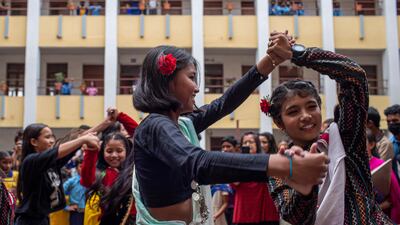In many Indian cultures, the guru or mentor is regarded with the utmost respect. The festival of Guru Purnima (or Guru Poornima) came about as way to pay tribute to one's teachers.
The day serves as a reminder of the importance of learning and honouring those who have served as guides.
In Hindu culture, the day is also observed as the birth anniversary of the revered sage Vyasa, traditionally regarded as the author of the epic Mahabharata. Some therefore refer to the day as Vyasa Purnima.
Hindus, Jains and Buddhists all celebrate the festival in India, Nepal and Bhutan.
When is it celebrated?
Guru Purnima falls on the full moon day or purnima in the month of Ashadha in the Hindu Calendar, which corresponds to June/July in the Gregorian calendar. This year, it falls on Monday.
How is it celebrated?

On Guru Purnima, students pay their respects to their teachers and mentors by performing rituals in their honour. Many head to temples and other places of worship for the occasion, singing religious hymns and commit themselves to the teachings of their gurus.
Schools and universities across India also organise events where students thank their teachers. Alumni often visit their alma mater and present gifts as a gesture of gratitude.
In Nepal, the day is observed as Teachers' Day across the country. Students honour their teachers by offering them delicacies, gifts and garlands and receive blessings in return.
Some Buddhist monks dedicate the day to intensive meditation and spend the entire day in monasteries, while many Buddhists give up meat and alcohol for the day.

